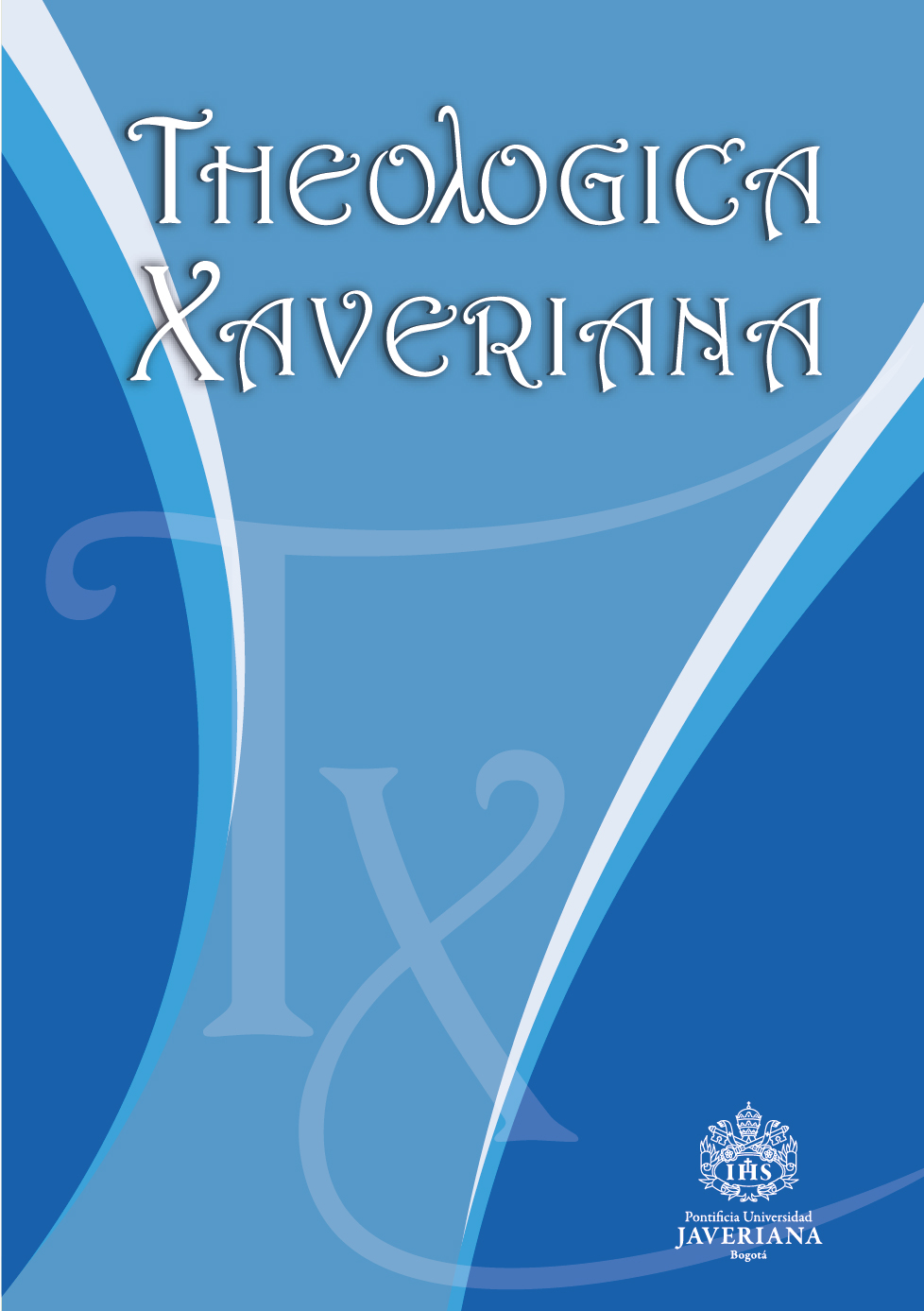Abstract
The Ignatian corpus refers to the knowledge of God proposing the affirmation that knowing God is Jesus Christ (Ignatius, Eph 17,2a). Although this statement is qualified in other passages (Ignatius, Rm 8,2b), it is not immediately clear how Jesus is the knowledge of God. That is to say, it is not clear if knowing of God is equal to listening to Jesus, looking at and following his example, or if knowing Jesus is knowing God because Jesus and God are one, which implies that knowing one is knowing the other.
The thesis of this essay is that, for Ignatius, Jesus Christ is the knowledge of God because he reveals in his life and actions, until his death, the purposes of God. Recent approaches to the epistemological studies of the New Testament suggest that it is necessary to treat the topic of knowledge focusing on the lexemes that express the concept.
This exercise makes it possible to order and categorize the different uses and provides clarity on how the different types of knowledge are understood. Applying the work of Ian W. Scott, it is suggested that Ignacio deals with at least four types of knowledge: knowledge of the mundane (knowledge that is apprehended by observing phenomena in the public sphere); theological knowledge (knowledge about God, which requires God’s intervention in revealing himself ); ethical knowledge (knowledge about how to behave as members of the church); experiential knowledge (knowledge that does not imply a concept of an object, but has to do with knowing something by experiencing it). An application of this taxonomy to Ignatius reveals that, when speaking of knowledge of God or theological knowledge, Ignatius focuses on Jesus and that Jesus is the revealer of God’s purposes in his death and the events of his life.
Audi, Robert. “The Sources of Knowledge”. En The Oxford Handbook of Epistemology, editado por Paul K. Moser, 71-94. New York (NY): Oxford University Press, 2002.
Ayán Calvo, Juan José. Padres apostólicos. Madrid: Ciudad Nueva, 2000.
Carroll, John T. y Joel B. Green. The Death of Jesus in Early Christianity. Grand Rapids (MI): Baker Academic, 2007.
Cullmann, Oscar. The Christology of the New Testament. Traducido por S. C. Guthrie y C. A. M. Hall. Londres: SCM, 1959.
Downs, David J. “The Pauline Concept of Union with Christ in Ignatius of Antioch”. En Paul and the Apostolic Fathers, editado por Todd D. Still y David E. Wilhite, 143-161. London: Bloomsbury T&T Clark, 2016.
Foster, Paul. “The Epistles of Ignatius of Antioch (Part I)”. The Expository Times 117 (2006): 487-495.
_____. “The Epistles of Ignatius of Antioch (Part 2)” The Expository Times 118 (2006): 2-11.
Frei, Hans W. The Eclipse of Biblical Narrative: A Study in Eighteenth and Nineteenth
Century Hermeneutics. New Haven (CT): Yale University Press, 1974.
Fudge, Edward. “The Eschatology of Ignatius of Antioch: Christocentric and Historical”. Journal of the Evangelical Theological Society 15 (1972): 231-237. Disponible en: JETS, https://edwardfudge.com/wordpress/wp-content/uploads/2014/11/JETS_esch_Ignatius.pdf/
Hays, Richard. “‘Crucified with Christ’: A Synthesis of the Theology of 1 and 2 Thessalonians, Philemon, Philippians, and Galatians”. En Pauline Theology. Vol. 1: Thessalonians, Philippians, Galatians, Philemon, editado por Jouette M. Bassler, 227-246. Philadelphia (PA): Fortress, 1991.
_____. The Faith of Jesus Christ: The Narrative Structure of Galatians 3:1-4:11. Grand Rapids (MI): Eerdmans, 2002.
Holmes, Michael W. (ed.). The Apostolic Fathers Greek Texts and English Translations. Grand Rapids (MI): Baker Academic, 2007.
Isacson, Mikael. To Each Their Own Letter: Structure, Themes and Rhetorical Strategies in the Letters of Ignatius of Antioch. Stockholm: Almqvisit & Wiksell, 2004.
Lightfoot, J. B. The Apostolic Fathers. Part 2: S. Ignatius and Polycarp. 3 vols. London: MacMillan, 1885.
O’Keefe, John J., y R. R. Reno. Sanctified Vision: An Introduction to Early Christian Interpretation of the Bible. Baltimore (MD): The John Hopkins University Press, 2005.
Orbe, Antonio. La unción del Verbo. Estudios Valentinianos. Vol. III. Roma: Editrice dell’Universita Gregoriana,1961.
Pratscher, Wilhelm. The Apostolic Fathers: An Introduction. Waco (TX): Baylor University Press, 2010.
Rescher, Nicholas. Epistemology: An Introduction to the Theory of Knowledge. Albany (NY): State University of New York, 2003.
Richardson, Cyril C. The Christianity of Ignatius of Antioch. New York (NY): Columbia University Press, 1967.
Ryu, Jang. Knowledge of God in Philo of Alexandria. Tübingen: Mohr Siebeck, 2015.
Schoedel, William R., y Helmut Koester. Ignatius of Antioch: A Commentary on the Letters of Ignatius of Antioch. Philadelphia (PA): Fortress Press, 1985.
Scott, Ian W. Implicit Epistemology in the Letters of Paul: Story, Experience and the Spirit. Tübingen: Mohr Siebeck, 2006.
_____. Paul’s Way of Knowing. Story, Experience and the Spirit. Grand Rapids (MI): Baker Academic, 2009.
Thompson, Marianne Meye. The God of the Gospel of John. Grand Rapids (MI): Eerdmans, 2001.
Vainio, Olli Pekka. “Martin Luther on Perception and Theological Knowledge”. NZSTh (2015): 87-109. doi: https://doi.org/10.1515/nzsth-2015-0005/
Vall, Gregory. Learning Christ: Ignatius of Antioch and the Mystery of Redemption. Washington, D.C.: Catholic University Press of America, 2013.
Weinandy, Thomas G. “The Apostolic Christology of Ignatius of Antioch: The Road to Chalcedon”. En Trajectories through the New Testament and the Apostolic Fathers, editado por Andrew Gregory y Christopher Tuckett, 71-84. Oxford: Oxford University Press, 2005.
Wright, N. T. The New Testament and the People of God. Philadelphia (PA): Fortress Press, 1992.
Zahn, Theodor. Ignatius von Antiochien. Gotha: Perthes, 1873.
Zañartu, Sergio. El concepto de ‘zoe’ en Ignacio de Antioquía. Madrid: Eapsa, 1977.
Fuentes primarias
Aristóteles. Analytica posteriora (An Post)
_____. De anima
Ignatius, A los efesios (Ef)
_____. A los filadelfianos (Fila)
_____. A los magnecianos (Magn)
_____. A Polycarpo (Pol)
_____. A los romanos (Rm)
_____. A los esmirneanos (Smyrn)
_____. Alos tralianos (Tral)
Platón, Symposium
Platón, Theaetetus
Plotinus, Las Enéadas (Enn)
Porphyry, Eis ta harmonika Ptolemaiou hypomnēma
Proclus, “Comentario sobre Timaeus de Platón”

This work is licensed under a Creative Commons Attribution 4.0 International License.



